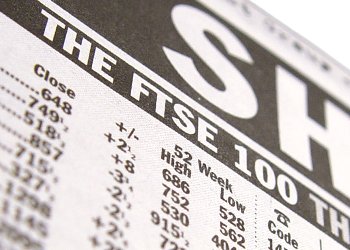Only 52 of the FTSE 100 companies disclose their carbon footprint in their annual report according to a league table published yesterday.
Supermarket Marks and Spencer topped the latest carbon ranking of FTSE firms by Carbon Clear for the second year running.
But the results suggest not all of the country’s 100 largest, most actively traded companies on the London stock exchange are as open when it comes to greenhouse gas emissions.
That’s despite the fact new rules came into force yesterday demanding roughly 1000 UK listed companies must put their global greenhouse gas emissions into their annual report.
What’s more the research shows only 29 companies have carbon targets to or beyond 2020. However two-fifths (41%) of firms showed evidence they are willing to go beyond just reporting their emissions and are looking at ways to mitigate risk and adapt to prepare for climate change.
To compile the ranking, Carbon Clear scored publicly available information from each company against 65 criteria.
Mark Chadwick, Chief Executive of Carbon Clear said: “It’s no secret that Marks and Spencer have a well-developed carbon management programme but it’s a real achievement that the company continues to innovate and be a best practice leader for a second year.”
Behind M&S in the top of the table were telecoms giant BT and transmission firm National Grid. Also in the top of the table were supermarket Sainsbury’s, insurers Aviva, brand house Unilever, publishers Reed Elsevier, TUI Travel and broadcasting business BSkyB.
The property firm British Land, Costa Coffee owner Whitbread and the banks Barclays and HSBC were also high scorers.
For the third year in a row, supermarkets scored the highest average scores while the transport and logistics sector scored the lowest average scores in 2013.
Mr Chadwick added: “Companies will not be able to hide poor disclosure performance and we believe that the best practice identified through our research signposts the way to better reporting.”





